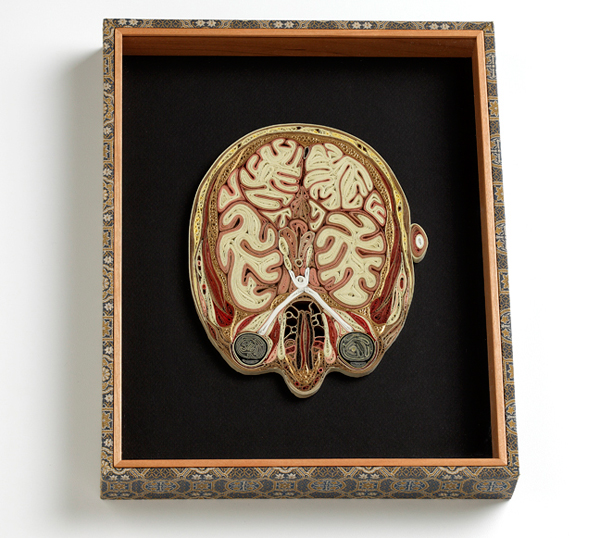Machines have always been easy to fool.
People too, but if enough people look hard enough, eventually someone will notice. Usually they’re declared insane and locked up, though. The Mars base was nearly eight years old before anyone noticed the forest, and nine by the time anyone else believed her.
After that it was obvious.
The canals, the forests and plains and seas: all around us, enclosed in the tiny ring of red dirt that we’d been circling endlessly, and our rovers before us, convinced we were seeing a whole world.
It was only a matter of time before someone spotted a thoat.
It was rather nice not to have to wear space suits all the time. Mars was a lot warmer than we’d thought, and the atmosphere was a whole lot more accommodating. I hear they’re going to send a crew to Venus to see what it really looks like. Jungles, I’m betting, but I’m not planning on leaving Mars any time soon.
We got a tiny mass ration for personal goods. Most people brought special foods, or some little luxuries. I brought a sword. Single edged, lightly curved, sharp enough to cut between raindrops. Oh yes, we had rain too, enough to keep the canals flowing. A couple of guys were building kayaks in their spare time. The sword belonged to my umpty-great grandfather, according to family legend, part of the Mongol armies of the twelfth century. It was really meant for use on horseback, but I practiced forms with it every day, kept it sharp and clean and oiled. I swung it. The blade whistled through a precise arc, stopped dead at an exact point.
I’d never used it on a living being. Once I practiced on straw-filled dummies, but there was no straw on Mars. Or actually, there probably was, we just hadn’t found it yet. I twisted the blade, admired the way the reflections of the double moons slid across the steel, catching on each slight ridge. Once I’d daydreamed of riding across the endless plains on my smart and faithful mare, falcon on her perch, sword sheathed at my side and bow slung along the saddle. Then I daydreamed of visiting Mars. Studying science, engineering, calculus, earning a doctoral degree and undertaking NASA training, waiting and more waiting: that’s the daydream I worked toward, though every day the sword and I exercised together.
Now I dreamed of riding thoat-back across the plains of Mars, with the Barsoomian equivalent of a falcon circling overhead. Deja Thoris might be too much to ask, but it was my daydream so I could have whoever I wanted.
I toweled my sweat away. It had been a warm day for Terra, let alone Mars, and hadn’t yet cooled off, though the sun was below the horizon. I’d be chilled if I stayed out much longer, damp and no longer working hard.
Akiko met me inside the airlock, a vital necessity on an airless planet. We no longer bothered to seal it, but it was still the main accessway. “Susan,” she said, falling in next to me when I didn’t stop, “I was getting worried. You were out so late.”
When I married her, Akiko and I had both just finished grad school, were both entirely focused on getting into NASA, still a boy’s club, and onto the Mars team. As much as anything, we’d fallen together because nobody else understood our obsession. Everyone else I’d dated had drifted away before too long, uninterested in a partner who worked most of the time, and talked about Mars incessantly for the rest.
Shared obsession might not have been the strongest foundation for a marriage ever, but it worked for them. Until the illusions were broken, anyway. Akiko was entirely unable to cope with Mars-as-it-was. She wouldn’t go outside, and fretted incessantly when I spent time outside the walls, something I did more and more often.
I loved the smell of the breeze, the volatiles that reminded me of creosotebush after a rain, the flowers opening in the long Martian spring. I was a geophysicist, but only because that was the specialty most likely to get me onto the team. If things were different, I would have been a botanist. But who knew we’d need botanists on Mars? My childhood of tramping around in the fields and forests, then looking up my finds, had catapulted me into the leading botanical expert on the whole planet, even though I’d discarded plants entirely once the Mars bug bit me.
Akiko didn’t understand that either. She’d never done anything in her life that wasn’t focused on her one goal, even marrying me. My sword practice had always perplexed her, but she understood the necessity for exercise so she left it alone. This, though: studying plants that shouldn’t even exist. She couldn’t handle it. She’d been drinking more and more. I could smell beer on her breath even now.
I pulled away as she clutched at my arm. Tomorrow I’d try again. I’d go out with my sword and drill in the field under the light of two tiny moons, a few essentials tucked in my pockets just in case.
Tomorrow my thoat would appear, or the tomorrow after that.
This is a Friday flash, only on Sunday. As always, I asked for ideas on twitter, wrote the story in one fell swoop, then posted it here completely unedited.
Tonight’s contributors:
@fadeaccompli – the romance of the second moon
@soundym – beer, marriage, awkward conversation
@quasigeo – falconry, calculus, a 12th c. Mongol sword
The general consensus was that it should be science fantasy in space.

